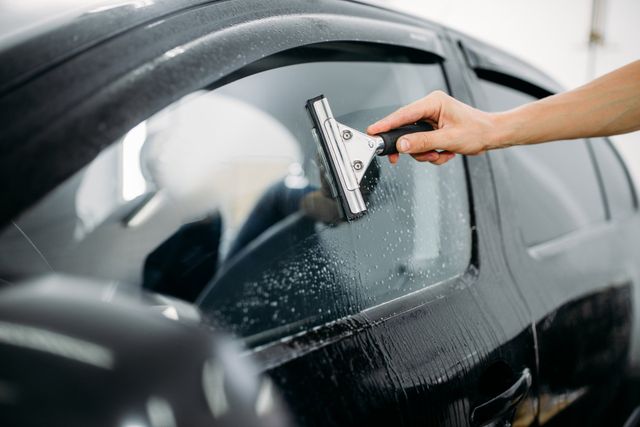Window tinting is more than just a cosmetic enhancement for your vehicle or property. It’s a practical solution that offers a multitude of benefits, ranging from improved privacy to increased energy efficiency. In this comprehensive guide, we delve into the world of window tinting, exploring its various advantages, applications, and considerations.
Understanding Window Tinting
At its core, window tinting involves applying a thin film to the interior or exterior of windows. This film is typically made from polyester and is treated to enhance its properties such as UV resistance, heat rejection, and glare reduction. Window tinting films come in various shades and thicknesses, offering flexibility to suit different preferences and needs.
The Advantages of Window Tinting
- UV Protection: One of the primary benefits of window tinting is its ability to block harmful ultraviolet (UV) rays. These rays not only pose health risks to occupants by causing skin damage but also contribute to the fading of interior furnishings and upholstery.
- Heat Rejection: Window tinting can significantly reduce the amount of heat entering a vehicle or building, thereby improving comfort levels and reducing reliance on air conditioning. This not only enhances comfort but also lowers energy costs.
- Glare Reduction: Glare from sunlight or artificial sources can be a major distraction and discomfort, especially while driving or working. Window tinting helps mitigate glare, promoting safer driving conditions and a more conducive indoor environment.
- Privacy Enhancement: Tinted windows provide an added layer of privacy by limiting the visibility into vehicles or buildings from the outside. This feature is particularly beneficial for protecting personal belongings and sensitive information.
- Enhanced Security: In addition to privacy, window tinting can improve security by reinforcing glass, making it more resistant to shattering upon impact. This can deter theft and mitigate the risk of injury from broken glass shards.
Applications of Window Tinting
- Automotive: Window tinting is a popular aftermarket upgrade for vehicles, offering both aesthetic appeal and functional benefits. Whether it’s a sleek, tinted look for a sports car or practical heat rejection for a family SUV, automotive window tinting can be tailored to suit individual preferences.
- Residential: In homes, window tinting is often used to regulate indoor temperatures, reduce glare, and protect furnishings from sun damage. It can be applied to windows in bedrooms, living rooms, and even conservatories, providing year-round comfort and energy savings.
- Commercial: Many businesses opt for window tinting to enhance the comfort of their employees and customers, as well as to improve energy efficiency. Offices, retail stores, and restaurants can all benefit from the glare reduction and UV protection offered by tinted windows.
Considerations for Window Tinting
Before investing in window tinting, there are several factors to consider:
- Local Regulations: Check local laws and regulations regarding the darkness and reflectiveness of window tinting films, as these vary by jurisdiction.
- Quality of Film: Choose a reputable manufacturer and installer to ensure the quality and longevity of the window tinting film. High-quality films may cost more initially but offer superior performance and durability.
- Type of Tint: Decide whether you prefer a traditional dyed film, a metalized film for added heat rejection, or a ceramic film for superior clarity and performance.
- Warranty Coverage: Inquire about warranty coverage for the window tinting film, including protection against fading, bubbling, and peeling over time.
Conclusion:
Window tinting is a versatile solution that offers a range of benefits for vehicles, homes, and businesses alike. From UV protection and heat rejection to privacy enhancement and glare reduction, tinted windows can significantly improve comfort, safety, and energy efficiency. By understanding the advantages, applications, and considerations of window tinting, individuals can make informed decisions to enhance their living and working environments.

